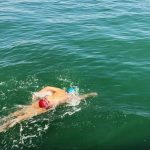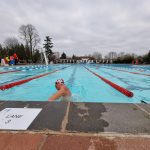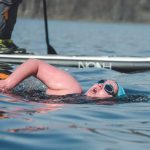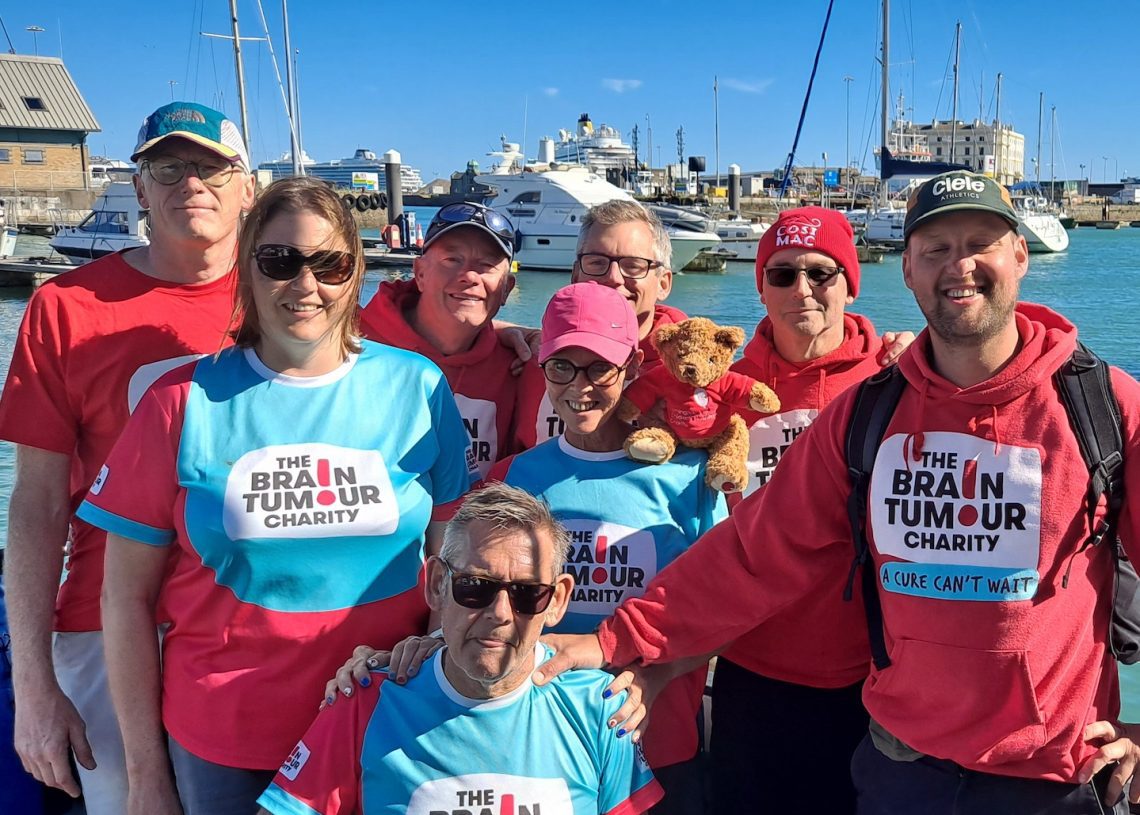
Our oldest mixed relay across the English Channel
David Rock and his swim buddies tell us about their record-breaking (pending ratification) oldest mixed 4-person relay across the Channel, and how they prepared themselves for the swim of their lives
We are within touching distance of the French coast; the sun is shining, and the sea is calm. Our two-year journey is nearly over. A time for celebration and reflection.
It all started within an idea to support two very worthy charities, The Brain Tumour Charity and Birmingham Children’s Hospital Charity. Both of which have directly supported members of our team in the past. August 2023 was payback and celebration time with a few of the team reaching milestone birthdays (70, 65 and 60).
You might also like
- How to prepare for an English Channel relay swim
- I learnt to swim from scratch then took on the English Channel
Our merry band of swim buddies consisted of eight experienced pool and open water swimmers; we had been swimming together for many years. It was decided to split into two teams of four, ‘Brainwaves’ and ‘Team BCH’. As some of the team are getting on in years we decided to try and set a new Guinness Word Record for the oldest mixed 4-person relay.
Failure was never an option, but having said that, it was essential we optimised our chances of success, even if mother nature had other ideas! It was felt three hurdles needed to be overcome:
- Physical fitness – could we swim three or four 1-hour slots with little rest?
- Swimming in the dark and in an ever-changing environment
- Being comfortable with the cooler water temperatures in the Channel
Training and acclimatisation
Living in the Midlands it takes at least two to three hours to reach the coast, no matter which direction you go. This meant that making it there regularly, especially if all eight of us had to attend simultaneously, would be too great a logistical and time-consuming challenge. We figured, then, that we could pool swim three or four times a week for around 3k per session, and supplement that with local open water swimming in nearby lakes.
We knew that to be accepted as a legitimate Channel swim team, we had to ditch the wetsuits and rely solely on swimming costumes and trunks. So come April/May 21, when open water season began, we bravely plunged into the chilly waters. As was to be expected, our first reaction was one of shock, but as our bodies became accustomed to the temperature, swimming commenced. We started off with just ten or fifteen minutes in the cold water, but together we encouraged each other to increase our time. Having read through the CSA information pack thoroughly, we understood the only way we’d make it on the start line was if we could manage a two-hour swim in water 15.5 degrees or colder.
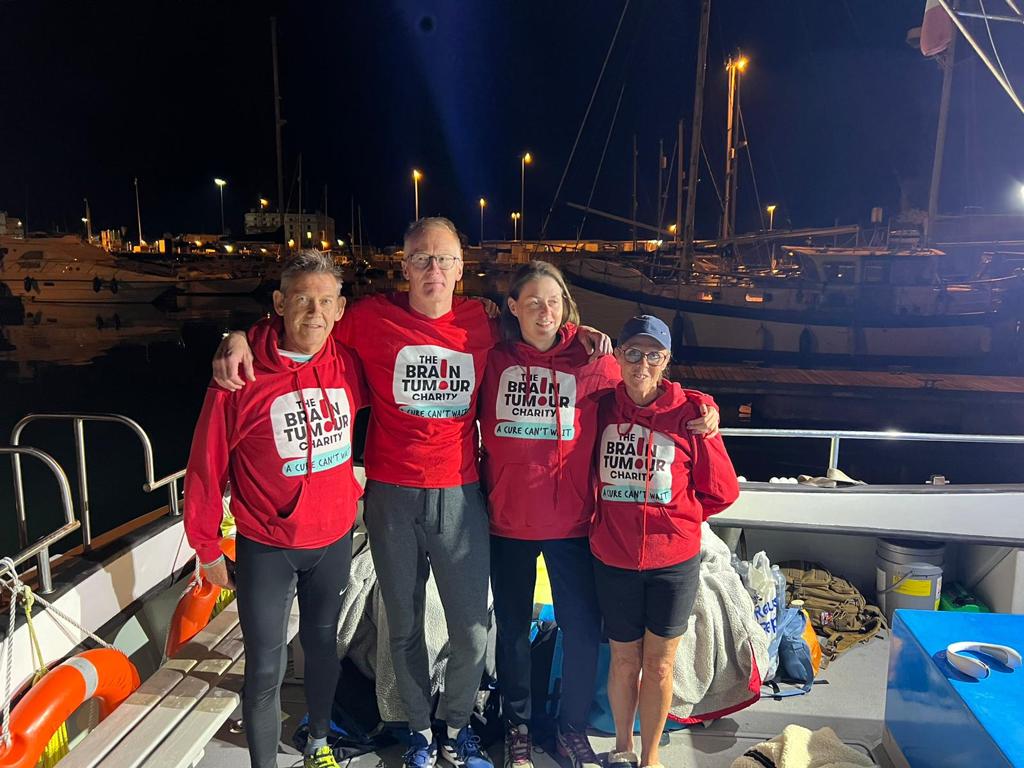
It didn’t take us long to get used to getting out of our comfort zones, and soon we found ourselves able to stay in the chilly open water for 30 minutes. Our endurance increased quickly: from thirty to forty-five, then sixty minutes. Over a few weeks, we set aside two days each week for open water swimming sessions; confidence soared. The next step was sea swimming – although none of us had much experience with it.
The only solution was to plan a swim out at sea. Eleven months before our planned channel swim, we journeyed to Dover with the team for a two-day session of sea swimming. Day one was composed of two 90-minute blocks, with an hour’s break in between. The second session was challenging but it boosted our confidence. After day two, which included another gruelling sea swim, we travelled home exhausted but proud of ourselves.
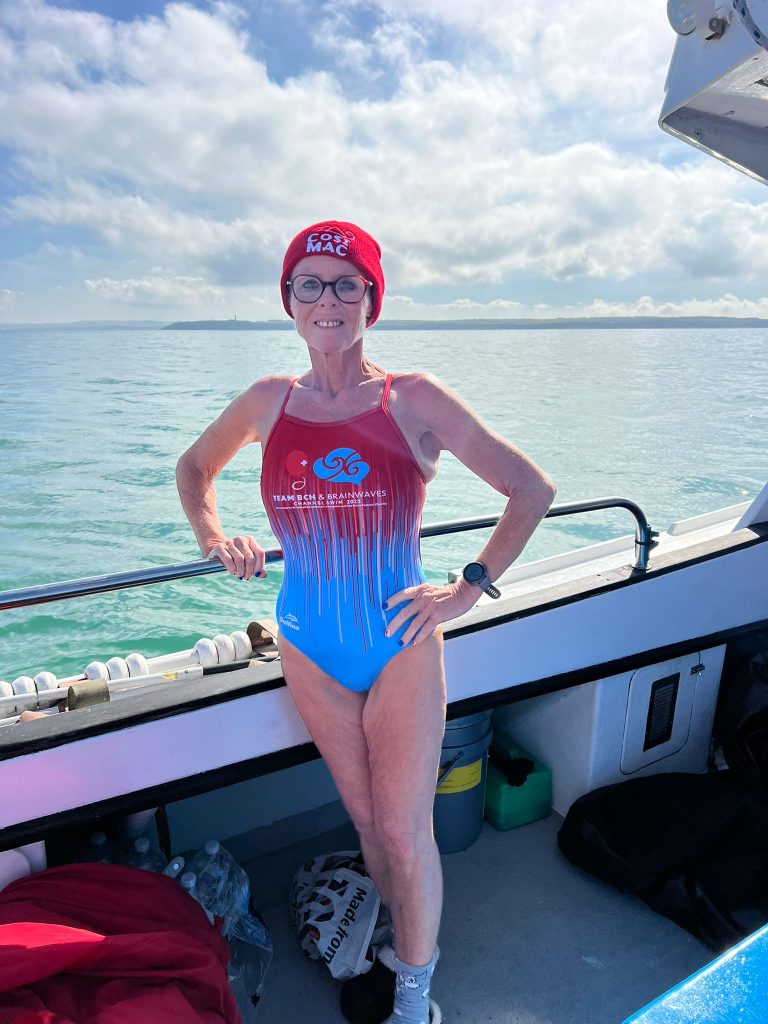
Even as the water temperature dropped to single digits, Caroline and Diane continued their open water swims. They were not afraid of the icy waters and managed to complete their two-hour qualifying swim with flying colours (way to go, girls!). As for the rest of us mere mortals, we succumbed to our timidity and stuck to pool swimming from November until March.
We all started swimming in open water again when February turned to March – the only thing on our mind was that two-hour qualifying swim the men had to complete. A date was chosen for the attempt at Chasewater, Cannock – swim course approximately 600 meters long. We expected to have to do six or seven laps in two hours and counting each one helped keep our mind off the time ticking away.
Our plan was unfolding as we had expected, however, to increase our probability of success we added three more training goals.
Firstly, a weekend of sea swimming in Wales was planned. Our group of eight gave us assurance that we had enough expertise and safety awareness to look out for each other.
Secondly, we ventured back to Dover this time to spend the weekend with our pilot Stuart Gleeson swimming alongside his magnificent boat Sea Leopard. Swim sessions were booked for both Saturday and Sunday. These swims proved to be invaluable as well as learning exactly what we needed to execute a successful relay takeover to comply with CSA rules. After all the hard training we did not want to DQ. Stuart also gave us an idea of our expected swim time.
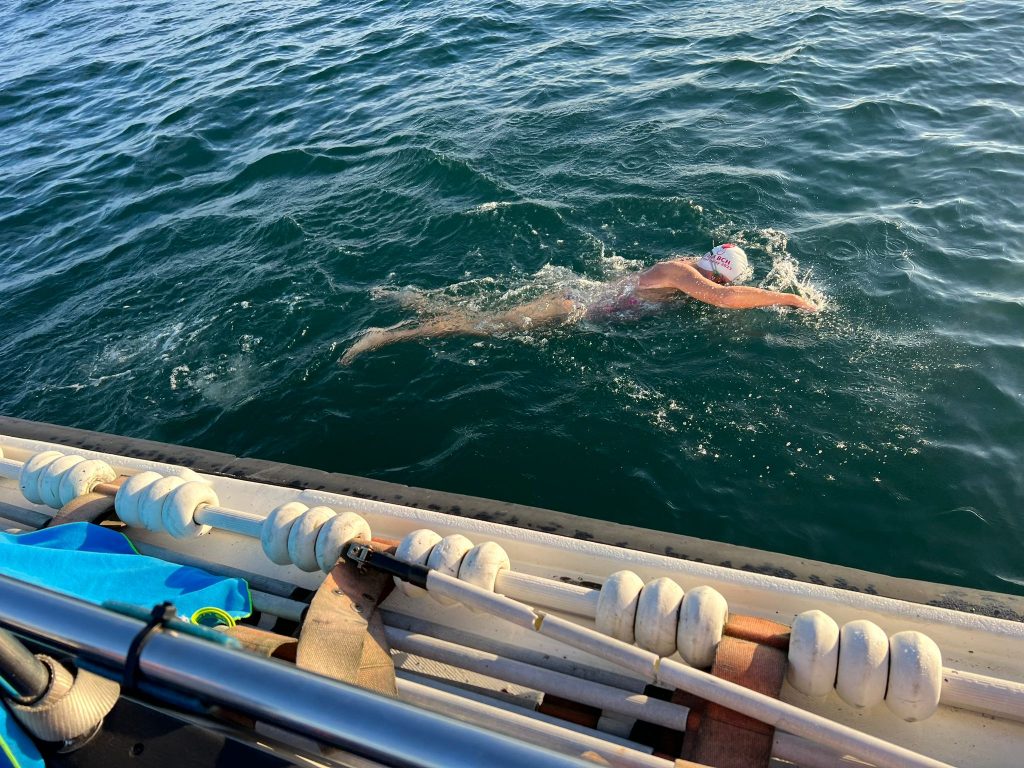
Thirdly, we signed up for the 24 hour “Level Water” relay swim at Shepperton. What an experience, not only did we need to swim longer than our expected channel swim, but we were all able to experience night swimming with minimal sleep. Although extremely tired we all knew that barring the cruel intervention of mother nature on our allotted Channel swim day, we were ready to complete the challenge and raise generous amounts of money for our two charities.
Charities close to our hearts
We set up a fundraising page and used social media to inform our friends, supporters, and the wider swim community about our cause. Sharing our story on Instagram and Facebook was essential to helping us reach our goal (a big thank you to Diane for organising this). We didn’t stop there; we also made phone calls to the Brain Tumour Charity and visited Birmingham Children’s Hospital. This gave us a better understanding of how our swim could make a difference in people’s lives and helped put our own temporary discomfort into perspective.
The Brainwaves swim
Beginning the journey at 11:30PM didn’t bother us; we were full of adrenaline from our training and night swims, so we felt ready. The sea was quite choppy for the first couple of hours though, causing a few cases of seasickness. We held onto each other’s determination not to let the team down as motivation for tackling the waves.
Eventually, the conditions became calmer, and after completing our first swim, things became easier. The pain and discomfort we had experienced were worth it, especially as we witnessed a breathtaking sunrise over the sea. We could see the coastline of France on the horizon, but we still had hours of swimming ahead of us. Our journey would not be complete until we touched French soil and navigated through the stronger tidal currents near the coast. But once Sea Leopard‘s support RIB passed the last swimmer, it was certain that our crossing would be successful. We were then just a few hundred meters from the finish.
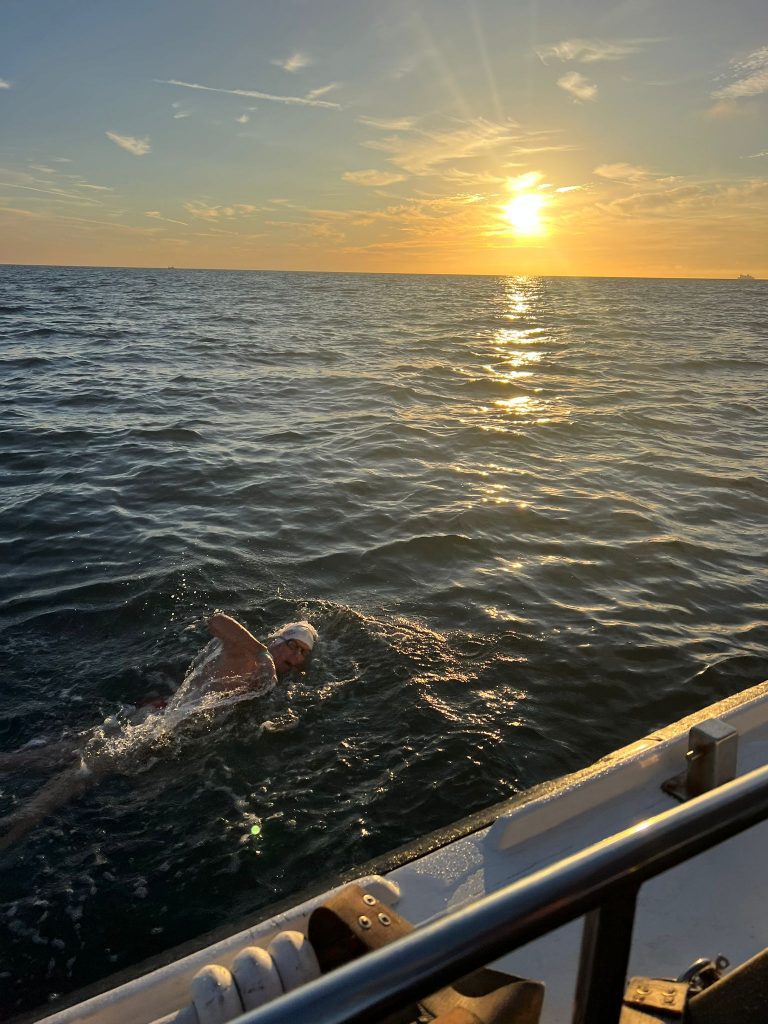
Nutrition is always an important consideration, and our approach was to try and eat at normal mealtimes, using an assortment of energy gels and drinks as well as “normal food” such as porridge, pasta, sandwiches, crisps and fresh fruit especially grapes and watermelon (great for sorting the effects of salty water). Hot Ribena and cups of tea were also a big help.
The results were two successful crossing, one Guinness World record (awaiting ratification) and over £30k raised for our chosen charities.
On 16 August 2023 Brainwaves completed the swim in 12 hours 21 mins (Dave Rock, Diane Asbury, Lionel Spittle and Caroline Jones),
On 21 August 2023 Team BCH completed the swim in 11 hours 59 mins (Paul Tucker, Kevin Rock, Martyn Finney and Simon Kimberley).
Our swim adventure was complete, elated with our success. Ultimately a successful swim is in the hands of the swim gods, but you can take steps to improve your chances of success as we have demonstrated, and we hope our swim experience helps others to feel that same sense of achievement.
Brainwaves and Team BCH’s fundraising page is still open for donations.
Read more inspiring readers’ swim stories.






